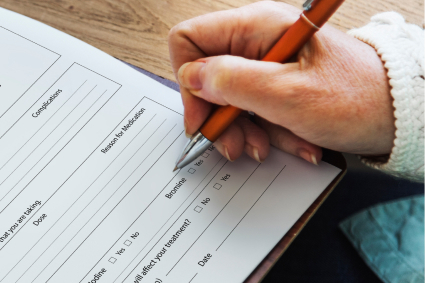When you are addicted to a drug or alcohol, it is nearly impossible to recover on your own. The substance you are dependent on affects your brain, clouds your judgment, and makes it hard to even think clearly. Also, you crave the substance, which means that sometimes, it is your only priority. This is what people who struggle with addiction go through and why they need your help.
We will show you how to get a family member into drug rehab, details to consider, and how to choose the right treatment center. For those in the New Jersey area, We Level Up Lawrenceville NJ treatment center stands out as the most reliable option for providing your loved one professional help in battling addiction.
Skip to:
Substance Abuse Statistics in New Jersey
In 2022, in New Jersey, 85,266 people were admitted for substance addiction. Here are the numbers of admissions for most prevalent substances:
- Alcohol: 31,807
- Heroin: 30,933
- Other opiates: 6,553
- Marijuana/synthetic cannabinoids: 5,610
- Cocaine/crack: 5,005
- Methamphetamines/other stimulants: 2,098
These numbers illustrate the gravity of the addiciton problem in New Jersey. If your loved one is one of the people who is struggling with addiction, you need to take it seriously. Learn how to recognize the signs of addiciton, when to and seek support, and how to get a family member into drug rehab as soon as possible.

How to Know if Your Family Member Needs Drug Rehab?
Here are some signs that might show your loved one needs rehab:
- Withdrawal from family and friends: Pulling away from social interactions and becoming isolated.
- Loss of interest: Not caring about hobbies or activities that used to be enjoyable.
- Mood swings: Experiencing drastic changes in mood, from high energy to deep sadness.
- Change in appearance: Looking different, such as neglecting personal hygiene or experiencing unexplained weight changes.
- Unusual smells: Smelling of substances or smoke that is out of character.
- Secretive behavior: Being unusually secretive or defensive about activities and whereabouts.
Do you recognize any of these? If yes, the sooner you learn how to get a family member into drug rehab, the better for them.

How Addiction Affects Relationships
You will learn that addiction and relationships are interconnected. Substance abuse is known to affect the entire family unit. Your loved one’s addiction might lead to tension and conflict with your family. This happens because communication breaks down. Eventually, you start arguing more often as you struggle to understand and cope with the addiction. Also, your loved one may lie or manipulate you to hide their behavior. This makes you question their honesty and reliability.
Unfortunately, you cannot trust them fully anymore. Also, your family member starts feeling isolated. They might feel as if they were alone in their struggle, especially if they don’t feel comfortable reaching out for support. Therefore, you need to discover how to get a family member into drug rehab and show them support.
Early Intervention Increases the Chance of Recovery
You can prevent addiction from growing into a more serious problem. Early intervention increases the chances of recovery and decreases the risk of long-term damage to health. It will help preserve your relationship, too.
The sooner you figure out how to get a family member into drug rehab, the better their chance to heal.
Get Help. Get Better. Get Your Life Back.
Searching for Accredited Drug & Alcohol Rehab Centers Near You? Or Mental Health Support?
Even if you have failed previously, relapsed, or are in a difficult crisis, we stand ready to support you. Our trusted behavioral health specialists will not give up on you. Call us when you feel ready or want someone to speak to about therapy alternatives to change your life. Even if we cannot assist you, we will lead you wherever you can get support. There is no obligation. Call our hotline today.
FREE Addiction Hotline – Call 24/7What Rehab Looks Like
Wondering how to get a family member into drug rehab? Telling them about rehab will help. When your loved one first comes to a rehab center, they feel excited and nervous. This is normal because they are entering a new environment and they want to change, which might feel overwhelming. So, what is the first week in a New Jersey rehab like? Being familiar with this will help you prepare your loved one mentally.
We begin with a tour of the facility. We do this to make people familiar with the place. This makes them less anxious to be here.
During the first week, your family member will meet with a counselor or admissions specialist to guide them through the admission process. They will discuss their drug use history, emotional health, and set goals.
Your family member will also have time to settle in and relax. The first week’s schedule will give them a chance to ease into the rehab routine, have a chance to reflect, and get ready and motivated to heal and start building a new life.
Treatment Process
The treatment will be created to meet your loved one’s unique needs. The first week includes various therapies and activities designed to help them start forming connections with others who are facing similar challenges. Treatment includes the following:
- Detoxification
- Individual and group therapy
Detox
Now that you have learned how to get a family member into drug rehab and managed to convince them to get help, treatment can start. It all begins with detox. This is a medically supervised process where you clear your body from the abused substance. Withdrawal symptoms might occur. Some common ones are:
- Anxiety: Feelings of nervousness or panic as the body adjusts to the absence of substances.
- Depression: Low mood and lack of motivation, which can be severe in some cases.
- Insomnia: Difficulty falling asleep or staying asleep, often due to discomfort or anxiety.
- Fatigue: Extreme tiredness and a lack of energy as the body expends energy to heal.
- Irritability: Quick to anger or frustration due to discomfort and emotional fluctuations.
- Headaches: Common and can range from mild to severe.
- Nausea and vomiting: The body’s reaction to withdrawal can lead to gastrointestinal upset.
- Sweating: Increased perspiration as a physical response to detoxification.
- Shaking: Tremors or shakes, particularly in cases of alcohol or benzodiazepine withdrawal.
- Muscle aches and pains: General bodily discomfort as a result of the detox process.
Our We Level Up Lawrenceville NJ expert team will be here to help your loved one manage these symptoms and handle any further complications that might occur. Also, if you have any questions about how to get a family member into drug rehab in the first place, reach out for advice.

Individual and Group Therapy
After a medical check-up and tests to ensure that all substances are cleared from their body, they start preparing for treatment. They will join therapy, both individual and group.
Individual therapy in a rehab setting is a private, one-on-one session with a therapist. The main approaches used here are:
- Cognitive-behavioral therapy (CBT): This therapy helps individuals identify and challenge negative thought patterns and behaviors that lead to substance abuse. For example, a therapist might work with a client to recognize triggers that lead to drug use and develop coping strategies to deal with these triggers. Therefore, learn how to get a family member into drug rehab and give them a chance to work with a therapist.
- Motivational interviewing (MI): This is a client-centered approach that enhances an individual’s motivation to change. For instance, the therapist might help a client explore the pros and cons of continued substance use versus achieving sobriety.
- Dialectical behavior therapy (DBT): Used particularly for individuals with borderline personality disorder or intense emotional instability, DBT helps in managing emotions, improving relationships, and practicing mindfulness.

On the other hand, group therapy sessions involve multiple participants, typically led by one or more therapists. These sessions provide a supportive environment where your family member can share experiences, challenges, and successes with peers who are facing similar issues. Group therapy includes:
- Support groups: These are peer-led or therapist-led sessions where members support each other’s recovery efforts. An example is a 12-step program like Alcoholics Anonymous (AA) or Narcotics Anonymous (NA).
- Skill-building sessions: These groups focus on developing specific skills, such as stress management, communication skills, or relapse prevention techniques.
- Psychoeducational groups: These sessions educate participants about substance abuse, mental health conditions, and the recovery process.
Legal Considerations for Committing a Family Member
The question of how to get a family member into drug rehab includes legal matters. There are two options to consider:
- Involuntary admission
- Voluntary admission
Involuntary Admission
If you admit your loved one to rehab without their consent, it is called involuntary commitment. The criteria for this type of admission include:
- Danger to self or others: You need to show that your family member poses an immediate threat to their own safety or the safety of others.
- Inability to care for themselves: It might also be necessary to demonstrate that they are unable to care for themselves due to their mental state. This could be because they are not eating, taking medication, or maintaining personal hygiene.
- Evidence of mental illness or severe substance use: You often need to provide evidence that the person suffers from a mental illness or severe substance abuse issue that impairs their ability to make decisions.
Another part of the question of how to get a family member into drug rehab involves filing a petition with a local court. The court will review your evidence and decide if involuntary commitment is necessary. This often includes a hearing where the person can contest the commitment.
Voluntary Admission
When figuring out how to get a family member into rehab, keep in mind that voluntary admission is a much better choice. It is much simpler and involves the person agreeing to treatment. This results in a better outcome because the person is more likely to engage in the recovery process. They must understand what the treatment involves and voluntarily choose to participate.
If they agree, you can directly contact a rehab center to discuss admission. The facility will typically conduct an initial assessment to determine the best course of treatment and then guide you through the admission steps.

The Role of Family in Addiction Treatment
One of the main purposes of family therapy in addiction treatment is to help everybody understand what addiction is and how it affects behavior and relationships. This will replace blame and anger with empathy and support, and improve communication. Therapists help families learn to speak openly about their feelings without conflict.
Addiction often damages relationships. That’s why you need to learn how to get a family member into rehab. Family therapy focuses on healing these relationships by addressing past hurt and finding ways to rebuild trust. During therapy, families learn strategies to help support the recovering individual after they leave rehab. This includes setting boundaries, recognizing signs of relapse, and knowing how to respond effectively.
Family therapy will help you create a supportive environment during rehab. This will make your loved one feel safe to express themselves and face their issues. It will make them more willing to actively participate in their treatment program. Also, you will be able to provide the necessary support at home and prevent relapse.
Your loved one might be going through mental health issues as well. Your understanding and support will make it easier for them to focus on recovery.

Get Your Life Back
Find Hope & Recovery. Get Safe Comfortable Detox, Addiction Rehab & Mental Health Dual Diagnosis High-Quality Care at the We Level Up Treatment Centers Network.
Hotline (877) 378-4154Check Insurance and Coverage Options
Among your worries and thinking about how to get a family member into drug rehab, the additional burden of insurance and coverage might feel unnerving. However, there are a few simple steps to take to finally get started.
First, you should verify your coverage. Contact the provider directly or check your coverage details online through an online account. You need to know what types of rehab treatments are covered (inpatient, outpatient, detox services) and for how long. For example, you need to learn about Aetna rehab coverage New Jersey residents often use.
Some treatments may require pre-authorization. This means the insurance company must approve the treatment before you start it. Check if this is needed. Also, don’t forget to consider out-of-pocket costs. Even with insurance, there might be copayments, deductibles, or coinsurance. Knowing these costs upfront will help you manage your budget for treatment. It will make the question of how to get a family member into rehab easier. Maintain detailed records of all communications with your insurance and any transactions or submissions related to your treatment.
Insurance, such as Blue Cross Blue Shield rehab coverage NJ, can significantly reduce the financial burden of addiction treatment and make it accessible. Learn the details and ensure that your loved one utilizes their insurance benefits and minimizes costs while accessing necessary treatment.

Choose the Right Rehab Center to Heal Your Family
How to get a family member committed to rehab? Find the right place for them to receive support during the recovery process. You want to find a rehab center that will give the best possible care to your loved one. To ensure you choose right, look for accredited facilities. They need to have accreditations from relevant organizations and be licensed to operate. This will serve as the proof the center meets standards for care and safety.
Also, look for a rehab that has many treatment options and is able to offer your family member exactly what they need. The staff should be qualified and experienced, as well. They should be able to use evidence-based practices and therapies that are proven to be effective in treating addiction.
An excellent place that fullfils these conditions where you can seek help at is our We Level Up Lawrenceville NJ rehab center. In addition, we have a low patient-to-therapist ratio. This means that we are able to give personalized care and attention, which enhances recovery outcomes. Also, we offer dual-diagnosis treatment.
We provide a comfortable and supportive environment. This is an important factor to consider when managing how to get a family member committed to rehab. We will uplift your family member’s mood and motivate them. At our amenities, we promote relaxation which is good for their mental health.
We don’t forget about you and your loved one when you leave our center. We provide aftercare and alumni support to help your family member stay on track and rebuild their life.
Help Your Loved One Reshape Their Future
After having figured out how to get a family member into drug rehab, you will see that you gave them a real chance at a better life. In our We Level Up Lawrenceville NJ treatment center, they will get the support they need and learn how to break free from addiction, so don’t hesitate to contact us. They will adopt healthy ways to cope with reality and life problems. As they get better, they will rebuild their relationships, rediscover their passions, and feel good about themselves again. Seek professional help and help your loved one get the life they deserve.
Experience Transformative Recovery at the We Level Up Treatment Center.
See our authentic success stories. Get inspired. Get the help you deserve.



Start a New Life
Begin with a free call to an addiction & behavioral health treatment advisor. Learn more about our dual-diagnosis programs. The We Level Up treatment center network delivers various recovery programs at each treatment facility. Call to learn more.
- Personalized Care
- Caring Accountable Staff
- Comfortable Amenities
- Licensed & Accredited
- Renowned w/ 5-Star Reviews
We’ll Call You
Sources:
New Jersey Drug and Alcohol Use Treatment Substance Use Overview 2022 Statewide. (2023). Available at: https://www.nj.gov/humanservices/dmhas/publications/statistical/Substance%20Abuse%20Overview/2022/Statewide.pdf.





